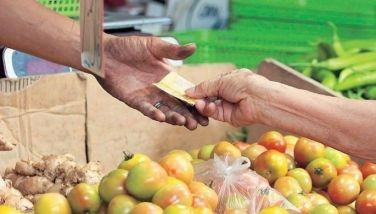Kokoy gets reprieve from Sandigan
Despite strong objections from government prosecutors, the Sandiganbayan has given former Philippine ambassador to Washington Benjamin "Kokoy" Romualdez until next month to prepare his defense on one of 27 counts of graft charges filed against him more than a decade ago.
In a two-page resolution, the graft court's second division reset the arraignment to June 22 to enable Romualdez to confer with his legal counsel as stated in the petition of the accused for postponement.
However, government prosecutors argued the May 16 petition was only intended "to delay his arraignment."
"There is no need to give the accused 30 days to prepare since the behest loan cases have been pending for more than a decade," Ombudsman Prosecutor Carlos Montemayor said in his answer to the petition.
Montemayor pointed out that after posting bail, Romualdez had enough time to confer with his lawyers and prepare any legal action he may take before the arraignment.
The graft case stemmed from a $124,000 loan from the Development Bank of the Philippines (DBP) taken out by Romualdez on behalf of Philippine Journalists Inc. (PJI) which the former ambassador owned.
The loan was intended to finance the purchase of printing machinery on Sept. 13, 1978.
Special Prosecution Officer Wilfredo Orencia said the PJI at that time was under-capitalized, and that the loan was not covered by any chattel mortgage on the machinery acquired from the loan's proceeds.
"The DBP's interest remained unprotected because the loan was not accompanied by any joint signatures of any PJI directors which is in violation of banking rules and procedures as well as the terms and conditions imposed by the bank," Orencia said.
Apart from Romualdez, respondents in the charge sheet included former chairman of the DBP Board of Governors Placido Mapa Jr. and board members Rafael Sison and Alejandro Melchor.
Orencia pointed out that as PJI owner, Romualdez was granted unwarranted benefits at the expense of government, which was unjustifiably forced to enter into a disadvantageous transaction.
- Latest
- Trending




























